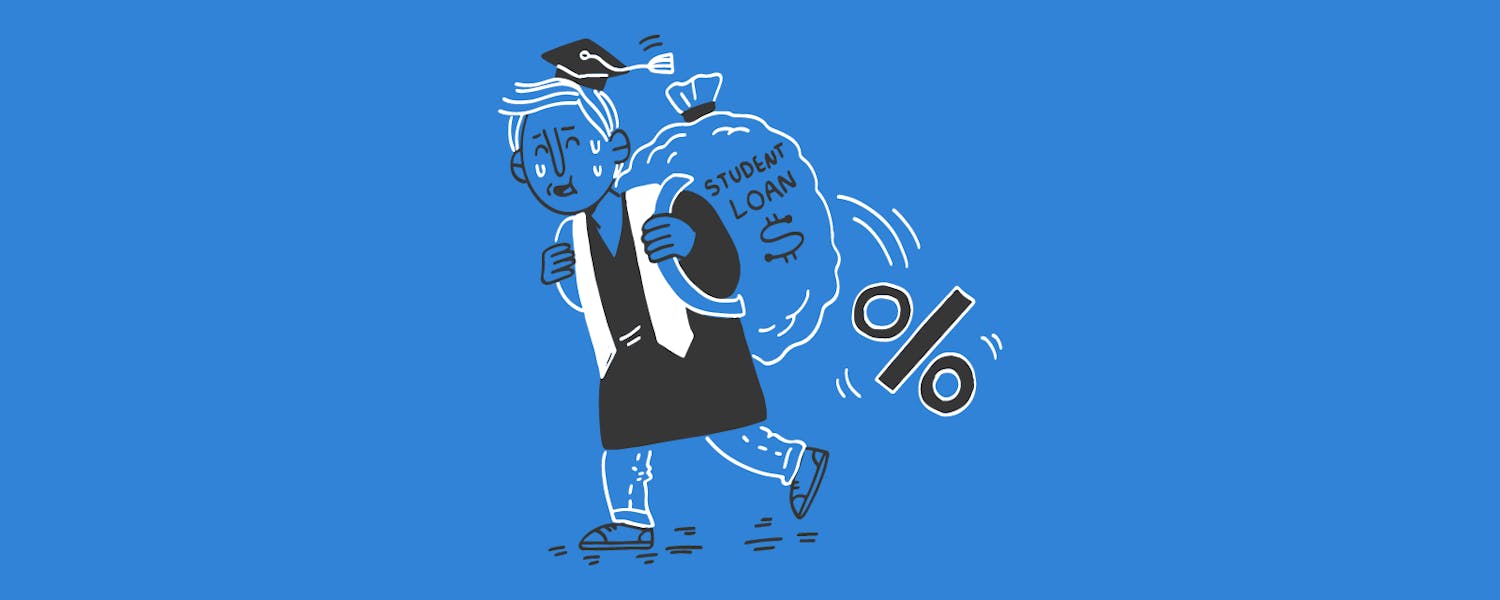This is how you DON'T PAY TAXES on your student loans
Taxes and student loans together in the same sentence? Why would we talk about two of your least favorite subjects at once?
Relax, we’ve got you. Taxes and student loans are both about money, and both critical parts of your personal finances.
It’s important to know how they work together and impact each other, so you can win with your money.
Do I have to pay taxes on my student loans?
Because student loans are debt, and expected to be repaid, they do not count as income.
For example, if you earned $25,000 working part-time during the school year, and took out $20,000 in student loans, your only taxable income for the year would be the $25,000 you earned.
Envato/ashishk75
Scholarships and grants are a little different. If you use all the money for tuition, fees, and books, that money is not taxable.
But if you use some of your scholarship money for indirectly related education expenses like room, board, or optional travel, then the amount you used for those items is taxable as income.
Debt forgiveness
If you had student loan debt forgiven, though, this may count as taxable income.
Most forgiven debt is taxable as income.
For instance, if you had a $5,000 loan in collections that you settled for $3,000, the $2,000 that you don’t have to pay is taxable as income.
Envato/MargJohnsonVA
But when it comes to student loans, things get a little complicated.
Federal, and some private, student loan forgiveness is generally exempt from taxation.
- The Public Student Loan Forgiveness Program the Total and Permanent Disability Discharge program are two student loan debt forgiveness programs that have no tax consequences.
- Then, enter COVID: under President Biden’s American Rescue Plan of 2021, most federal and private student loan debt forgiveness for any reason between the years 2021 and 2025 is tax-exempt.
Be aware, though, that not all states recognize the federal tax exemption.
Envato/LightFieldStudios
This means that in some states, you may still need to pay state income tax on the amount of forgiven debt.
Employer repayment
If you are lucky enough to get a job with an employer who will help pay your student loans as a condition of employment, this may also have tax consequences.
Up to $5,250 of employer repayment is not considered taxable.
Any amount they pay above this is considered taxable income. For example, if your employer paid $10,000 of your student loans provided you signed a 5-year work contract, then $4,750 of that amount would be included in your taxable income.
Envato/Garakta-Studio
Your employer would probably list it on your W-2.
Are student loans tax-deductible?
Are you in school? Did you pay for tuition, fees, or other related expenses with student loans? Are you filing taxes on your own, not as a dependent? If you answered yes to all these questions, then the answer is most likely yes, some of your student loans are tax-deductible.
You are able to deduct up to $2,500 of eligible academic expenses per year when you are in school.
After school, when you are paying back those loans, you can claim the interest you pay on those loans as a tax deduction.
The United States government wants to reward people for seeking an education. There are so many possible tax breaks around higher education that it is entirely possible to keep all your education money tax-free.
Educate yourself about all the possibilities, and speak to a CPA or tax advisor if you have any questions.





